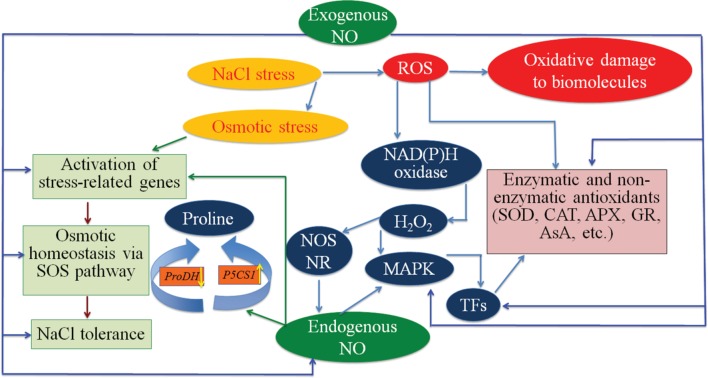FIGURE 5.
Potential mechanisms of NaCl stress mitigation by application of exogenous NO. Excessive NaCl causes osmotic and oxidative stresses in plants. Salt stress induces ABA accumulation, which promotes H2O2 generation through NAD(P)H oxidase. Stress-induced H2O2 triggers generation of endogenous NO by activating NR (nitrate reductase) and NOS (nitric oxide synthase)-like enzymes. Exogenous application of NO to plants may enhance the biosynthesis of endogenous NO, as well as that of antioxidant enzymes through MAPK (mitogen-activated protein kinase) and other unknown signaling pathways. Exogenous NO supplementation to plants can also up-regulate genes involved in proline synthesis, such as P5CS1, and other stress-related genes responsible for NaCl tolerance, whereas it might down-regulate ProDH that is involved in proline catabolism. Exogenous NO treatment may also help balance osmotic homeostasis in plants under salt stress via the SOS (salt overly sensitive) pathway, by increasing plasma membrane H+-ATPase activity. APX, ascorbate peroxidase; AsA, ascorbic acid; CAT, catalase; GR, glutathione reductase; H2O2, hydrogen peroxide; P5CS1, δ1-pyrroline-5-carboxylate synthetase; ProDH, proline dehydrogenase; ROS, reactive oxygen species; SOD, superoxide dismutase; TFs, transcription factors.

